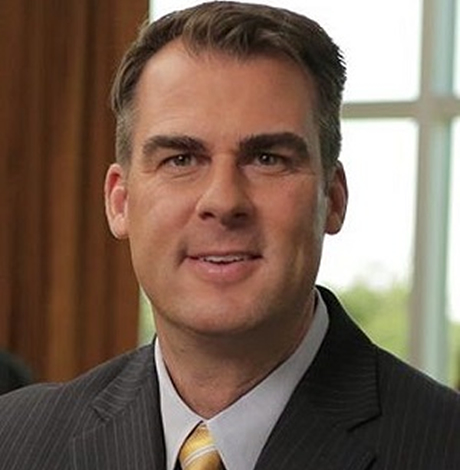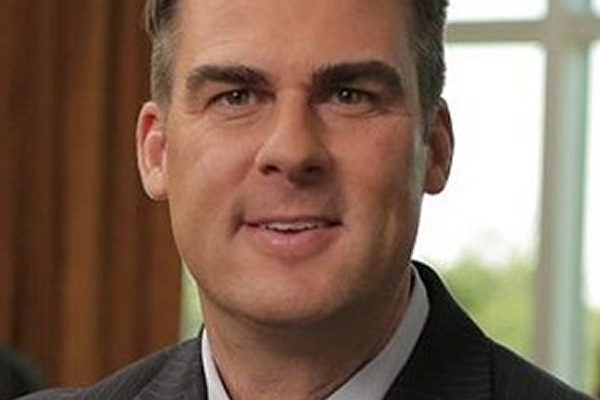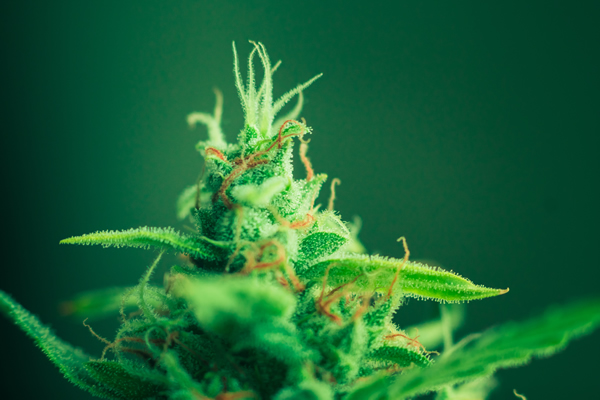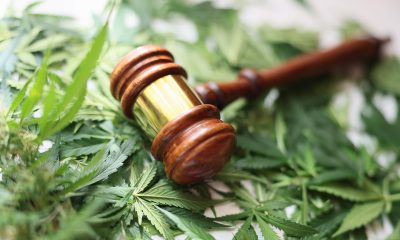Cannabis Culture
Cannabis Culture
Okla. guv signs medical marijuana measure


Okla. guv signs medical marijuana measure
OKLAHOMA CITY — Republican Gov. Kevin Stitt has signed legislation, HB 2612, clarifying regulations and patient protections specific to the medical use of cannabis. A majority of voters last June approved a statewide initiative authorizing the plant’s use, cultivation, and dispensing.
The new legislation codifies the regulatory bureau, the Oklahoma Medical Marijuana Authority, within the State Department of Health, establishes a registry for qualified patients and their caregivers, and establishes a revolving fund to address oversight matters.
It strengthens patient protections by explicitly stipulating that registered cannabis consumers may not be denied public assistance, access to firearms, or employment solely based upon their patient status. It further states, “No employer may refuse to hire, discipline, discharge or otherwise penalize an applicant or employee solely on the basis of a positive test for marijuana components or metabolites.”
The bill seeks to facilitate standards for banks who wish to partner with medical cannabis businesses, and prohibits local governments from enacting “guidelines which restrict or interfere with the rights of a licensed patient or caregiver to possess, purchase, cultivate or transport medical marijuana.”
Members of the House voted 93 to 5 in favor of the legislation. Senate members voted in favor of the bill by a margin of 43 to 5. The new law takes effect 90 days following the adjournment of the 2019 legislative session.
An estimated 55,000 Oklahomans are registered with the state to access medical cannabis.
Cannabis use linked to reduced BMI
EAST LANSING, Mich. — The use of cannabis over time is inversely related to obesity, according to data published in the International Journal of Epidemiology.
A team of Michigan State University researchers assessed the relationship between cannabis use and body mass index (BMI) over time in a nationally representative sample of 33,000 subjects.
Investigators reported that cannabis-using subgroups exhibited “appreciably attenuated BMI gain” over the trial period as compared to non-users and quitters, “with the largest attenuation seen in the ‘persistent use’ group.”
They concluded: “This new prospective study builds from anecdotes, pre-clinical studies and cross-sectional evidence on inverse associations linking cannabis use and obesity and shows an inverse cannabis–BMI increase association. Confirmatory studies with rigorous cannabis and BMI assays will be needed.”
Several prior population-based studies, such as those here, here, and here, have similarly reported an inverse relationship between cannabis use and obesity.
Fla. repeals medical cannabis smoking ban
TALLAHASSEE, Fla. — Republican Gov. Ron DeSantis last week signed legislation, Senate Bill 182, repealing the state’s blanket ban on the inhalation of herbal forms of medical cannabis. Upon taking office, DeSantis demanded lawmakers rescind the ban, which he said was contrary to the provisions of the 2016 voter-initiated medical cannabis access law.
The new law took immediate effect.
Under the law, qualified patients are permitted to possess up to four ounces of herbal cannabis if a recommending physician opines “that the benefits of smoking marijuana for medical use outweigh the risks for the qualified patient.
Lawmakers had previously banned the act of smoking medical cannabis or possessing herbal cannabis flowers, except in instances where they are contained “in a sealed, tamper-proof receptacle for vaping” in 2017.
N.M. approves decriminalization bill
ALBUQUERQUE, N.M. — House and Senate lawmakers have approved legislation, Senate Bill 323, decriminalizing minor marijuana possession offenses. The proposal now awaits action from Democratic Gov. Michelle Lujan Grisham.
The bill reduces first-time penalties for the possession of up to one-half ounce of cannabis from a criminal misdemeanor — punishable by up to 15 days in jail — to a ‘penalty assessment,’ punishable by a $50 fine. Subsequent offenses, or in situations where the defendant possesses greater amounts of marijuana, will remain punishable by the possibility of jail time.
Police in New Mexico made over 3,600 marijuana possession arrests in 2016.
If signed into law, the reduced penalties take effect on July 1, 2019.
Twenty-one states have either legalized or decriminalized the adult possession and use of cannabis.
Broader legislation that sought to legalize the possession of marijuana by adults and regulate its commercial production and sale passed the House, but stalled in the Senate Finance Committee because the Chair failed to call the bill for a vote. Nonetheless, the Governor has announced that she will add the issue to the agenda of the 2020 legislative session.
Cannabis Culture news in the Blade is provided in partnership with NORML. For more information, go to NORML.com or contact Paul Armentano, NORML Deputy Director, at [email protected].

Democratic Gov. Michelle Lujan Grisham earlier this month signed two separate measures into law amending the state’s marijuana policies. The first measure (House Bill 2) legalizes and regulates marijuana possession, production, and sales for adults. The second measure (Senate Bill 2) facilitates the automatic review and expungement of the records of those convicted of low-level marijuana offenses.
Lawmakers approved both bills during a special legislative session demanded by Gov. Lujan Grisham, who had been a vocal proponent of the reforms.
NORML State Policies Manager Carly Wolf said: “This is a day to celebrate! New Mexico will greatly benefit from this new revenue stream and the creation of thousands of jobs. Most notably though, legalization will spare thousands of otherwise law-abiding residents from arrest and a criminal record, and the state’s new expungement law will help provide relief to many who are suffering from the stigma and other collateral consequences associated with a prior marijuana conviction.”
The adult-use measure (House Bill 2) permits those ages 21 and older to legally purchase up to two ounces of marijuana and/or up to 16 grams of cannabis extract from licensed retailers. It also permits adults to home-cultivate up to six mature plants for their own personal use. Retail sales would begin by April 2022.
The expungement measure (Senate Bill 2) stipulates that those with past convictions for offenses made legal under this act are eligible for automatic expungement of their records. Those currently incarcerated for such offenses are eligible for a dismissal of their sentence. It’s estimated that over 150,000 New Mexico residents are eligible for automatic expungement under this measure, according to the Department of Public Safety.
Cannabis Culture news in the Blade is provided in partnership with NORML. Visit norml.org for more information.
Cannabis Culture
Delaware cannabis activists take on corporate marijuana
Criticism from medical marijuana operators claimed that HB150 offers too many cultivation and retail licenses

As the country moves forward with sweeping changes in cannabis policy reform, locals in Delaware are tangling with corporate, multi-state medical marijuana permit holders to pass a bill for full legalization.
Adult-use activists and registered medical patients were stunned to hear opposing testimony from Delaware’s medical marijuana operators. Patients already deal with limited access and costly products. Now, many see the established industry voicing opposition as simply obstructing the progress of adult-use legislation. In response, some patients are now staging a boycott of the regulated dispensaries.
During the first committee hearing for HB150, Delaware’s adult-use bill, four of the state’s six currently licensed, multi-million dollar medical cannabis facilities offered negative testimony.
Zoë Patchell, executive director of Delaware CAN responded: “This market belongs to the long-time consumers, patients, and activists. We create the demand, we’ve been the ones driving the reform efforts, and we pay the prices at dispensaries. Cannabis is more than a market – cannabis is a community. These companies cannot reasonably fathom that we are going to purchase cannabis from any entity that has proven to put profits over patients. And now they seem willing to put consumers’ lives and freedom at risk just to hold out for an unfair advantage in the industry.”
These included publicly traded Columbia Care, “Fresh Delaware” aka CCRI, CannTech Research Inc., and the owner of EZY Venture aka “The Farm.”
They all went on record condemning HB150, and pushing a false narrative about oversupply. The core demand from the permit cartel was some protection for their private business interests with guaranteed adult-use licenses.
Criticism from the medical marijuana operators claimed that HB150 offers too many new cultivation and retail licenses, underlined by deep yet unfounded fears that the new competition would put their companies out of business.
Patchell noted, “We are not going to sit back while multi-state corporate entities, that already monopolize East Coast medical markets, work to undermine our social equity and micro-license provisions.”
Cannabis Culture news in the Blade is provided in partnership with NORML. Visit norml.org for more information.
Cannabis Culture
Virginia marijuana legalization takes effect July 1
Adult possession of cannabis up to one ounce without penalty

Following legislative approval of Democratic Gov. Ralph Northam’s amendments to Senate Bill 1406 and House Bill 2312, Virginia became the first southern state to legalize the possession and use of marijuana by adults.
Senate Bill 1406, introduced by Sen. Adam Ebbin (D-30) and Senate President Pro Tempore Senator Louise Lucas (D-18), and House Bill 2312, patroned by House Majority Leader Delegate Charniele Herring (D-46), establish a statutory timeline for the legalization of the commercial marijuana market in Virginia. The measure also permits for the personal possession and cultivation of cannabis by those ages 21 or older.
Last week, Gov. Northam recommended changes to the legislation to permit the personal use provisions of the law to take effect on July 1, 2021 rather than on January 1, 2024, the enactment date initially approved by lawmakers. A majority of the legislature concurred with that change.
Therefore, beginning July 1, 2021, adults will be permitted to possess up to one ounce of marijuana and to cultivate up to four cannabis plants per household without penalty.
The timeline by which state regulators have to enact provisions licensing commercial cannabis production and sales remains July 1, 2024.
Commenting on final passage, NORML Development Director Jenn Michelle Pedini, who also serves as executive director of Virginia NORML, said: “This is an incredible victory for Virginia. Legalization will bring an end to the thousands of low-level marijuana infractions occurring annually in the Commonwealth — ending a discriminatory practice that far too often targets Virginians who are young, poor, and people of color.”
Majority Leader Charniele Herring added: “It is a huge day for equity in the Commonwealth. Virginia is now the first state in the South to legalize recreational marijuana use, and I am so proud to have been able to carry this monumental legislation.”
Sen. Ebbin said, “The passage of SB1406 caps off years of struggle to reform our broken and outdated marijuana laws and begins the deliberate steps to repeal the harms of the failed prohibition. I am thankful to NORML, the governor, and my colleagues for moving this 283 bill from inception to passage over the last four months, and look forward to continuing to partner with them to establish a regulated, equity focused, adult-use marketplace in the coming years.”
Newly released statewide polling data finds that 68 percent of registered voters in Virginia, including majorities of Democrats and Republicans, support legalizing marijuana for adults.
Additional amendments added by Gov. Northam will allow the sealing of records related to crimes involving the misdemeanor possession of marijuana with the intent to distribute. Those records will begin to be sealed starting on July 1, 2021. Separate legislation enacted in 2020 previously sealed records related to misdemeanor marijuana possession.
Records specific to the simple possession of marijuana and/or misdemeanor possession with intent to distribute records will be automatically expunged no later than 2025. Those with records specific to crimes involving the felony possession of marijuana with the intent to distribute may begin to petition the courts for an expounging of their records in 2025.
The bill also allows for the re-sentencing of individuals currently incarcerated for marijuana-related offenses. The measure permits those individuals to have a hearing before the court that originally sentenced them, with legal counsel provided for indigent individuals. However, this portion of the bill must be reenacted in 2022.
The legislation also establishes an independent agency, the Virginia Cannabis Control Authority, to oversee the establishment of regulations that will govern the adult-use market. This agency is set to convene this summer. The remainder of the 300-page bill, which details the regulatory and market structure and social equity provisions, is subject to a second review and vote by the Assembly next year.
Cannabis Culture news in the Blade is provided in partnership with NORML. Visit norml.org for more information.




















